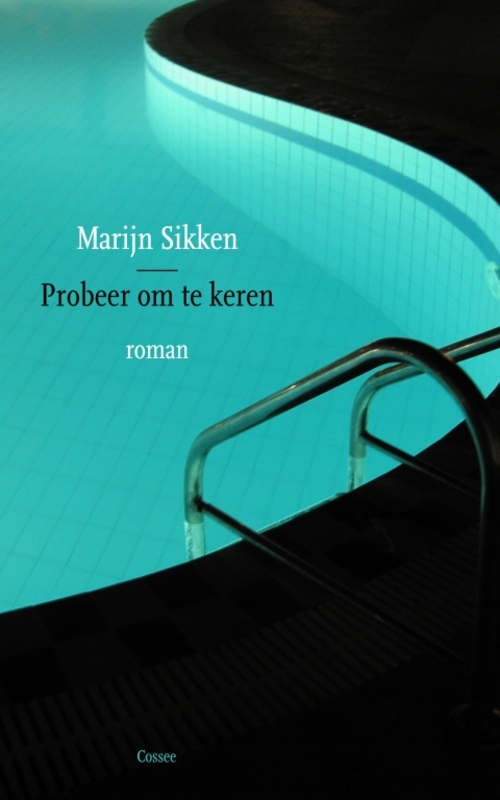
“Alma burns her tongue. She sets down her cup of coffee and leans with her back against the kitchen counter. The last drops of chlorine water trickle down from her neck: she went for a swim and just came back home. A plate with some bread crumbs and a sliced rim of ham fat lie in the sink. It is three minutes past eight, Arthur is already gone.
Today it is exactly two years ago. What can you do with a date like that? Michelle was looking forward so much to an evening at the cinema with friends, her first unaccompanied outing. They found her at the station.”
Before long the village will celebrate its centenary. Suddenly the bells of the railway crossing sound almost festive. It promises to be an emotionally charged celebration. Not only for the 18-year-old Eline, who is dating an older man, but also for Alma, mother of a child that will never be able to stand on its own two feet.
Eline has seen all her classmates leave the nest: to work, study, take gap years or travel. She stayed and found a job in the local Books & More Store, where she occasionally keeps an eye on Michelle. She, too, did not leave the village: Michelle is mentally impaired and since the fateful evening two years ago, her state has only worsened.
Michelle’s mother has mixed feelings, seeing the two girls get along so well, while she herself sometimes cannot stand her daughter. She catches herself being jealous, even resentful towards Eline – and consequently clings on to Michelle even more tightly. Friends and family, especially her husband, keep urging her to consider a housing facility for Michelle. Sometimes, they simply don’t leave the nest, they say. A mother also has to be able to let go.
During the big theme party, the centenary of the village - on the improvised beach, between umbrellas and craftsmanship booths - nothing remains unsaid. Marijn Sikken debuts with a razor-sharp and compassionate sketch of a small community, showing the reader how small the gap between love and indifference sometimes is.
‘Sharp and precise, without clichés. The drama is described in all its details which renders it all the more poignant. A heart-breaking narration, but there is also room for humour. – Jury report of Write Now!
‘Right from the start, a flawlessly written narrative unfolds. The characters are recognisable, no matter how small their role. And I knew: Marijn Sikken mastered the art of writing and knows how to construct a novel.’ – Literair Nederland
‘It is impressive how Sikken charges her language towards the end of the book without getting lost in emotions. A successful debut!’ – Nederlands Dagbald
‘Being able to let go and taking distance as well as being able to ask for help, play an important role at the foreground of the novel as well as behind the scenes. Sikken proves to the reader that everyone can make choices, but sometimes is confronted with hard facts. The village that Sikken skilfully creates plays an important role in this process: it protects, but it is also the biggest enemy. – Tzum
‘By changes in perspective, montage of scenes that come together and part at good pace, Sikken keeps the readers’ attention at all times. Her biggest quality is her skill at observing, her ability to capture what she sees in light ironic language. [..] With Marijn Sikken Dutch literature has gained a new high-quality literary talent.’ – De Limburger
‘With sharp and at times very painful observations, but also with a lot of humour Marijn Sikken shows the reader in Exit ahead the thin line between love and disinterest.’ – Villa d’Arte
‘But let’s be clear that there is nothing wrong with a writer drawing from their own experiences. Sikken’s debut it constructing its storyline while writing, and in that search Sikken has already very much found her own voice, the biggest accomplishment for a writer.’ – Trouw